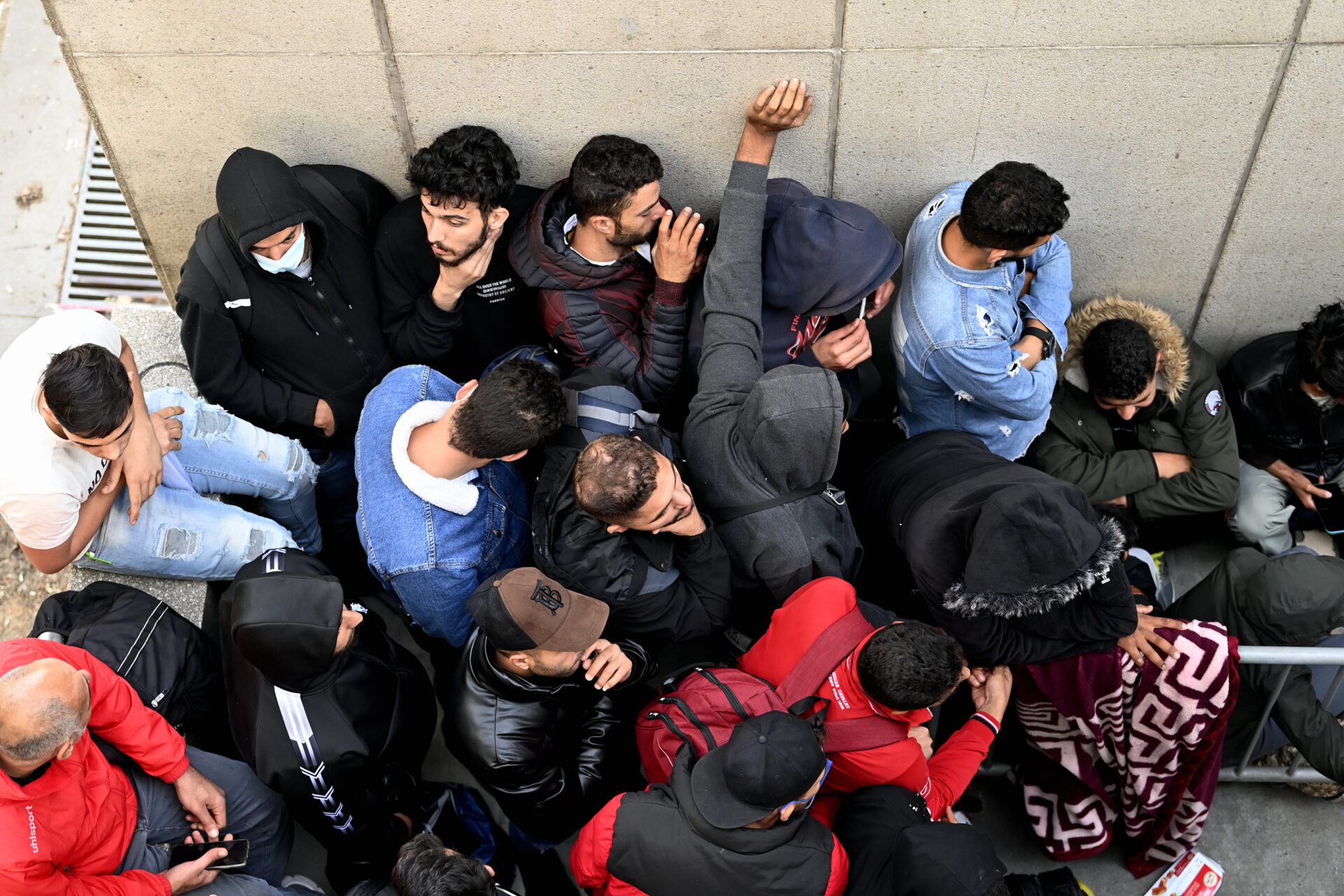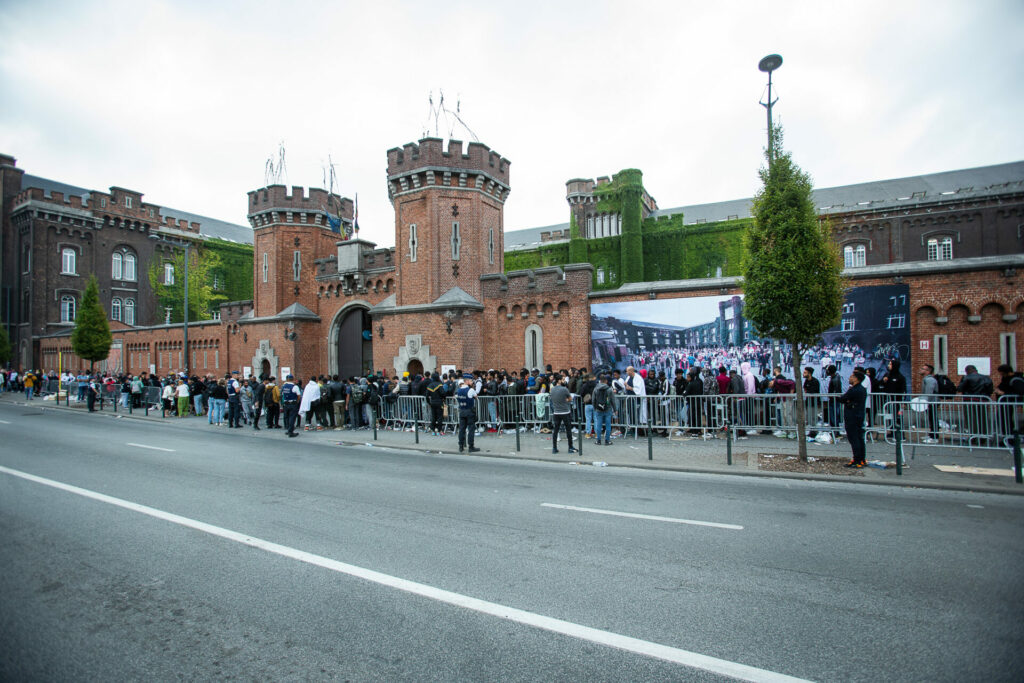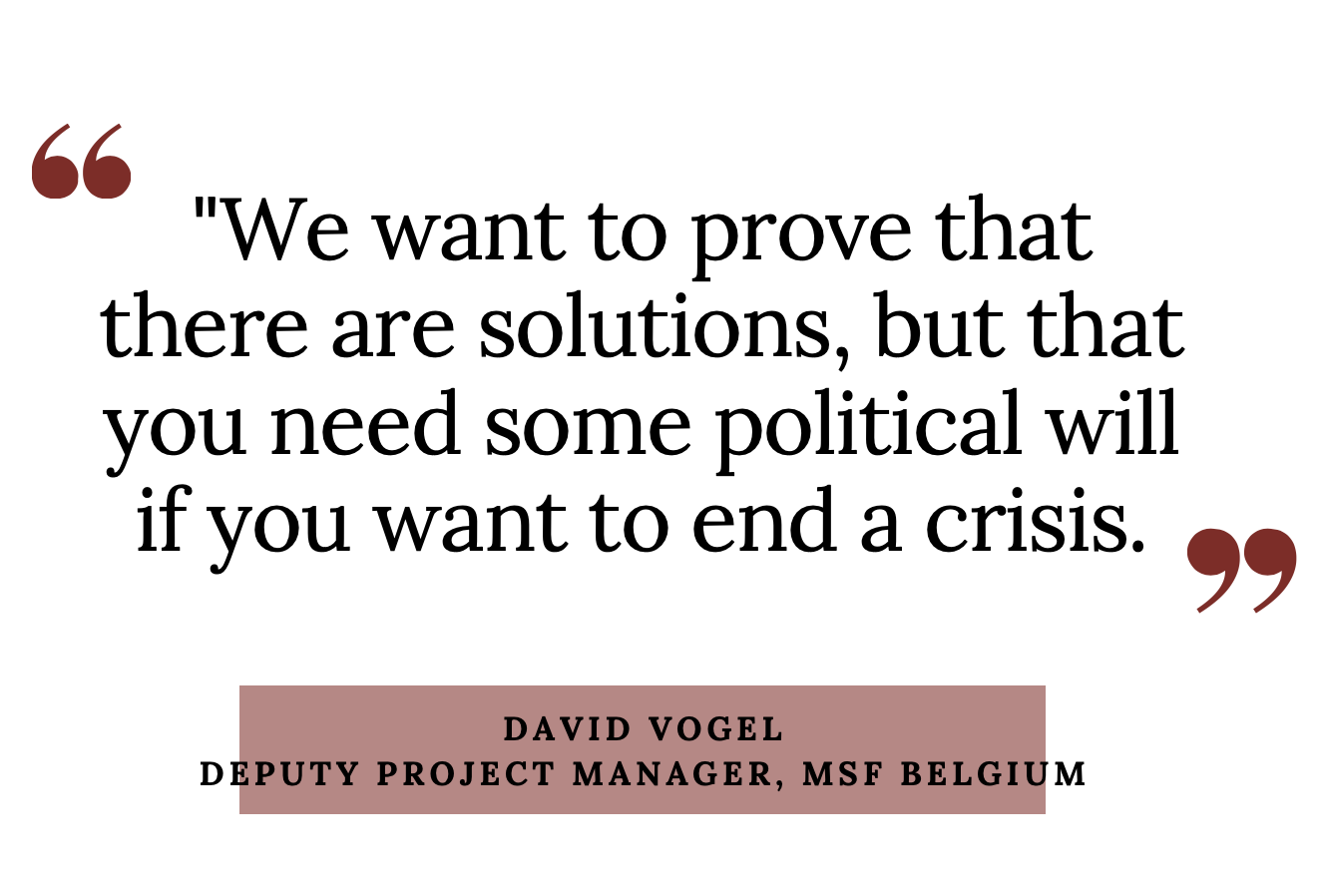For almost a year, the pavements next to the Klein Kasteeltje reception centre in Brussels have seen an increasing number of male asylum seekers camping outside as Belgium fails to offer them shelter. For civil organisations struggling to manage the problem, enough is enough.
In an interview with Le Soir on Monday, State Secretary for Migration Nicole de Moor said there is no silver bullet when it comes to tackling the issue of asylum seekers being left to sleep on the streets of Brussels. Several associations working closely with migrants disputed this claim and on Tuesday offered a range of solutions.
"We don't want to denounce the crisis, instead, we want to offer concrete solutions," David Vogel, deputy project manager of Médecins Sans Frontières (MSF) Belgium, told The Brussels Times.
"We have been working in this field for years and we know what we are talking about, but the government keeps sticking to the status quo without listening to what we have to say."
De Moor has proposed some measures but these largely put the responsibility on other parties involved, for example calling for a new European framework to deal with asylum seekers and tightening controls at Europe's borders.
"We want to prove that are very pragmatic solutions but that political will is key to ending the crisis," Vogel said.
More predictable plan
In the short term, the roadmap laid out by refugee associations proposes creating additional shelter places; in the longer term, the current reception model must be made more resistant to fluctuations in asylum applications.
"We are in favour of working with a system that has a 'red phase' if the reception network reaches a certain level of saturation. This would include certain steps that Fedasil must or can take to avoid entering a total crisis mode," Thomas Willekens of Vluchtelingenwerk Vlaanderen (Refugee Work Flanders), one of the organisations that worked on the plan, told The Brussels Times.
This roadmap will be presented to Prime Minister Alexander De Croo instead of to De Moor. "We are going straight to the Prime Minister. We feel that the time for dialogue with other bodies has passed. We now want to go to the Federal Government with the final responsibility."
In the past, De Croo has sided with De Moor (and before that with Sammy Mahdi, the previous State Secretary for Migration) when it comes to migration policies. "So it remains to be seen how he will react now," Willekens concluded.
Double standards
The organisations on Tuesday stressed that Belgium is not facing a migrant crisis, but a reception and humanitarian crisis. "We find ourselves in a crisis because the government is not willing to manage the situation," Vogel said.
While the number of asylum applications increased slightly since the pandemic and as a result of the Taliban take-over in Afghanistan, which saw the outflow from the reception system decrease, it is lower than in 2015.

Credit: Belga/ Eric Lalmad
The government showed that it is capable of responding to a large influx of refugees following the outbreak of the war in Ukraine. This prompted all levels of the government and local authorities to secure thousands of shelter places.
"Now we are talking about the need for shelter places for hundreds of single men, maximum around 1,000 but they are denied access to the reception system, and the government says there is no solution for this. There are real double standards," Vogel said.
Deteriorating health
While families and minors are granted shelter (for now), single men are left to their own devices. "Men are spending days, sometimes weeks, on the streets even though they are entitled to shelter," Vogel said.
As a result, medical conditions are deteriorating quickly. "The situation is so bad that there is a scabies epidemic in the heart of Europe now... And that's before we even start on the skin problems and psychological needs of these men."
Related News
- Belgian municipalities will receive a subsidy for accepting asylum seekers
- Belgium's asylum crisis: How did we go so wrong?
The situation is also exacerbating the existing housing crisis, creating a new group of homeless people, which puts an additional burden on organisations such as Samusocial. "At the MSF ' hub humanitaire,' almost half of beneficiaries are asylum seekers," Vogel said, adding that this is why organisations are joining forces.
"There are solutions, and when de Moor says there is no silver bullet, we know that is not true. She needs to listen to the associations and also to have more political courage to implement the necessary and available solutions."


